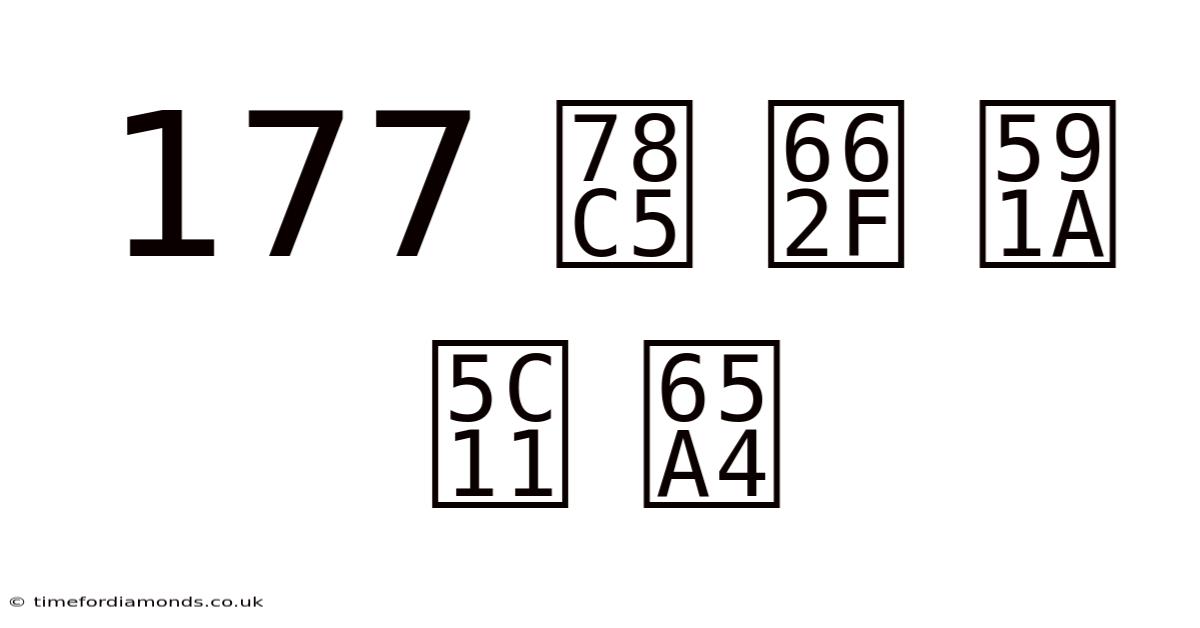177 磅 是 多少 斤
timefordiamonds
Sep 11, 2025 · 4 min read

Table of Contents
177 Pounds is How Many Jin? A Comprehensive Guide to Weight Conversion
Understanding different weight measurement systems can be confusing, especially when dealing with conversions between the imperial system (pounds, ounces) and the metric system (kilograms, grams), or even traditional systems like the jin. This article provides a comprehensive guide to converting 177 pounds to jin, explaining the process, clarifying the different weight units, and addressing frequently asked questions. We'll also delve into the historical context of these units, ensuring a thorough understanding of this seemingly simple conversion.
Introduction: Navigating the World of Weights and Measures
The question, "177 pounds is how many jin?", highlights the challenge of working across different weight measurement systems. Pounds are a unit of weight in the imperial system, commonly used in the United States and some other countries. Jin, on the other hand, is a unit of weight in the Chinese system, and its exact value varies depending on the region and historical period. This ambiguity requires careful consideration when performing conversions. We will focus on the most commonly used definition of jin in modern contexts.
Understanding the Units: Pounds and Jin
Before diving into the conversion, let's clarify the units involved:
-
Pound (lb): A unit of mass in the imperial and US customary systems. One pound is equal to 16 ounces. It's approximately 0.453592 kilograms.
-
Jin (斤): A traditional Chinese unit of mass. While historically its value has fluctuated, the modern standard widely used equates 1 jin to 500 grams (0.5 kilograms). This is crucial for accurate conversion. It's important to note that older texts or regional variations might show different values for jin. We'll consistently use the modern standard of 1 jin = 500 grams in this article.
The Conversion: 177 Pounds to Jin
To convert 177 pounds to jin, we need a two-step process:
-
Convert pounds to kilograms: Since we know 1 pound ≈ 0.453592 kilograms, we can multiply 177 pounds by this conversion factor:
177 lbs * 0.453592 kg/lb ≈ 79.83 kg
-
Convert kilograms to jin: Knowing that 1 jin = 0.5 kg, we divide the kilogram value by 0.5:
79.83 kg / 0.5 kg/jin ≈ 159.66 jin
Therefore, 177 pounds is approximately 159.66 jin. Rounding to a practical whole number, we can say that 177 pounds is roughly 160 jin.
The Importance of Precision and Context
While the above calculation provides a precise numerical answer, the actual weight might slightly vary depending on the specific measuring instrument and the level of precision required. In everyday scenarios, rounding to the nearest whole jin (160 jin) is perfectly acceptable. However, in situations demanding high accuracy, such as scientific research or industrial applications, using the more precise value (159.66 jin) is recommended. Always consider the context of the conversion when determining the appropriate level of precision.
A Deeper Dive: Historical Context of Weight Units
The evolution of weight measurement systems is a fascinating reflection of human history and technological advancement. Different civilizations developed their own systems, often rooted in readily available natural units. The pound, for example, has a rich history, evolving from the Roman libra and undergoing various refinements over centuries. Similarly, the jin has a long and complex history within Chinese culture, with variations in its value across different dynasties and regions. Understanding this historical context can provide valuable insights into the complexities of weight conversion. The modern standardization of the jin to 500 grams represents a significant step towards greater consistency and ease of international trade and communication.
Frequently Asked Questions (FAQ)
-
Q: Can I use an online converter for this type of calculation?
A: Yes, numerous online converters are available to quickly convert between pounds and jin. However, understanding the underlying conversion process is crucial for interpreting results and ensuring accuracy.
-
Q: What if I need to convert ounces to jin?
A: First, convert ounces to pounds (16 ounces = 1 pound), then follow the steps outlined above to convert pounds to jin.
-
Q: Are there other units of weight used in China besides jin?
A: Yes, the metric system is increasingly prevalent in China, but traditional units like liang (兩, a smaller unit than jin) are still sometimes used, particularly in traditional markets or when dealing with precious metals.
-
Q: Why is there variation in the value of jin historically?
A: The value of jin varied historically due to a lack of standardized weights and measures across different regions and time periods. The modern standardization to 500 grams aims to address this issue.
Conclusion: Mastering Weight Conversions
Converting 177 pounds to jin is a straightforward process once you understand the conversion factors involved. Remember that 177 pounds is approximately 160 jin, using the modern standard of 1 jin = 500 grams. However, appreciating the historical context and variations in weight units emphasizes the importance of clarity and precision when dealing with different measurement systems. With a clear understanding of these concepts and the steps involved, you can confidently navigate weight conversions between pounds and jin in various scenarios. Accurate conversions are vital in many fields, ranging from everyday life to scientific research and international commerce. The information provided here aims to empower you with the knowledge and tools to perform these conversions accurately and efficiently.
Latest Posts
Latest Posts
-
100 Nautical Miles To M
Sep 11, 2025
-
Fluid Ounces To Cubic Inches
Sep 11, 2025
-
16
Sep 11, 2025
-
Us Gallons To Uk Gallons
Sep 11, 2025
-
Dry Pint To Dry Ounces
Sep 11, 2025
Related Post
Thank you for visiting our website which covers about 177 磅 是 多少 斤 . We hope the information provided has been useful to you. Feel free to contact us if you have any questions or need further assistance. See you next time and don't miss to bookmark.